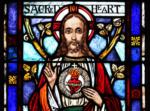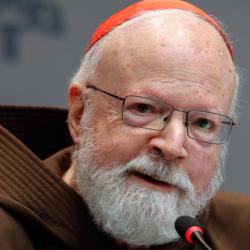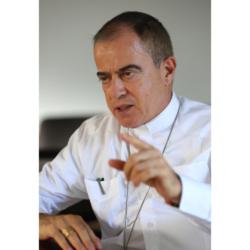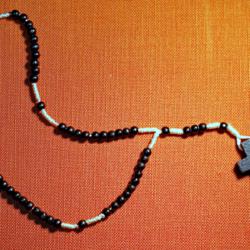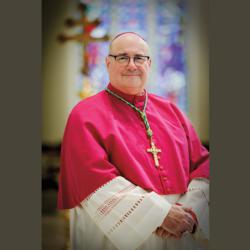Catholic nurses care for body and soul as part of long tradition of care, say experts
(OSV News) -- Amid an increasingly complex health care landscape, Catholic nurses provide enduring care to both body and soul, experts told OSV News.Every year the U.S. marks National Nurses Week May 6-12, ending on the birthday of nursing and social reform pioneer Florence Nightingale.Although Nightingale is regarded as the founder of modern nursing, "the profession itself has been around a long time," with "the Catholic Church at the lead of nursing for hundreds of years," Marie Nolan, dean of the Conway School of Nursing at The Catholic University of America in Washington, told OSV News.During the fourth century, St. Basil the Great created the Basiliad, a social service ministry complex that is generally considered to be the first hospital in Europe. In the 11th century, the Knights of Malta, originally known as the Knights Hospitaller, opened a hospital in Jerusalem to care for sick and wounded pilgrims.
Then as now, nurses strived to bring "great care and peace to people during some of their most vulnerable times," said Nolan, who once visited the Knights of Malta's 16th-century hospital -- the "Sacra Infermeria," now a museum and conference center -- in Valletta, Malta.The facility bore "great similarities to today," with individual beds and a drainage system that allowed patients to be efficiently bathed, said Nolan. "You could feel comfort and peace in that space, showing how they preserved the dignity of the patients, keeping them clean and comfortable."Catholic nurses are able to "bring the faith into their practice," Patricia Sayers, president of the National Association of Catholic Nurses USA (NACN-USA), told OSV News.NACN-USA, which traces its origins to the early 20th century, promotes Catholic moral principles in nursing while fostering professional development through educational programs, spiritual formation, patient advocacy, and the integration of faith and health. The organization is part of CICIAMS -- the French acronym for the International Catholic Committee for Nurses and Medico-Social Assistants -- which works closely with the Holy See's Dicastery for Promoting Integral Human Development."We are not nurses who happen to be Catholics. We are Catholics who are nurses," said Sayers.Marguerite Barnabei, a psychiatric nurse at a Philadelphia-area hospital, told OSV News she describes her work as "a vocation.""It brings purpose to my life," said Barnabei, who has spent 40 years caring for patients with "histories of trauma" and "hard lives" marred by mental illness, crime and substance abuse.Remaining grounded in their own faith helps Catholic nurses to minister in difficult situations, said Nolan."When they see themselves as made in the image and likeness of God, and they can see others in the same way, it's easy to have a sense of solidarity with the patient," she said. "Suddenly you're not just caring for, but suffering with, which is the meaning of the word 'compassion.'"At the same time, the profession can take its toll, said Deb Kelsey-Davis, a NACN-USA board member and co-founder of the Catholic ministry Nourish for Caregivers.Many nurses find themselves as what Kelsey-Davis called "double duty caregivers," who come home from long shifts at medical facilities to take up caregiving duties at home for aging, ill and special needs family members."They're burning the candle at both ends," Kelsey-Davis told OSV News.As part of this "silent epidemic," nurses end up "calling out sick, not being as productive and being emotionally unable to connect … because they're worried and carrying the stress of family care with them," she said.Double duty caregivers are at increased risk for both compassion fatigue, where clinicians take on their patients' stress, and burnout, which results in feelings of hopelessness about job performance, said Kelsey-Davis.Catholic nurses need to make sure they are being "spiritually nourished," even as they try to care for others -- a task that may seem counterintuitive, but one with a sound scriptural basis, she said."Jesus said 'no' at times; he went up the mountain to retreat," she said. "Jesus not only gives us permission, but he calls us to take time to spiritually heal to refill our own fuel of compassion and caring."Nurses can also reduce their stress levels by remaining grounded in their "right of conscience," which enables them to navigate health care situations -- such as end-of-life care and transgender treatments -- that contradict their faith, said Sayers."I think we sometimes get lost in the challenge of the day," she said. "You're connected to God in your faith; he dwells in us, and we are all his creation. We have to defend the right of conscience."Nolan agreed, adding that investing in training doctoral-level nursing faculty can help stem a chronic shortage of nursing professionals that began prior to the COVID-19 pandemic, due to retirements, increased demand for nurses and economic downturns.The U.S. Bureau of Labor Statistics projects that nursing openings will grow 6% between 2021 and 2031 -- but even without such data, the need for nurses, particularly those with a vibrant Catholic faith, is clear, said Kelsey-Davis."I believe Catholic nurses truly are a blessing because of how we see the meaning of our work as an extension of Christ's hands, touching and healing with compassionate hearts that see beyond the visible," she said. "We Catholic nurses are aware of God's presence in us and the graces poured forth from the ministering of our hands, which are truly entwined with our hearts and are instruments of our soul."- - - Gina Christian is a national reporter for OSV News. Follow her on Twitter at @GinaJesseReina. - - - BRIEF: PHILADELPHIA (OSV News) -- Amid an increasingly complex health care landscape, Catholic nurses provide enduring care to both body and soul, experts told OSV News. The U.S. marks National Nurses Week from May 6 to May 12, and Catholic nurses continue a long tradition of affirming human dignity, said Marie Nolan, dean of the Conway School of Nursing at The Catholic University of America, told OSV News. Nurses who draw on their faith can avoid the pitfalls of compassion fatigue and burnout, especially when the demands of caregiving at both work and home threaten to become overwhelming, said Deb Kelsey-Davis, co-founder of the Catholic ministry Nourish for Caregivers. Nurses can also reduce their stress levels by remaining grounded in their "right of conscience," which enables them to navigate health care situations -- such as end-of-life care and transgender treatments -- that contradict their faith, said Patricia Sayers, president of the National Association of Catholic Nurses USA. "We are not nurses who happen to be Catholics. We are Catholics who are nurses," said Sayers.







